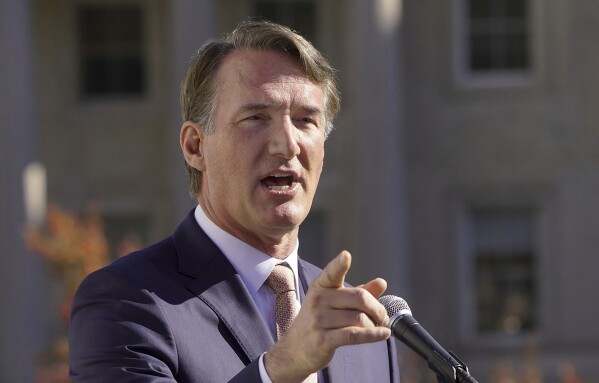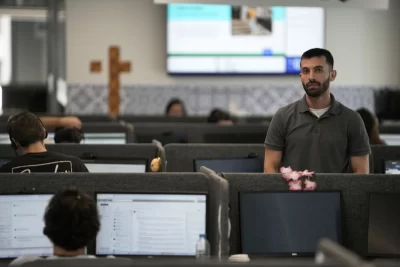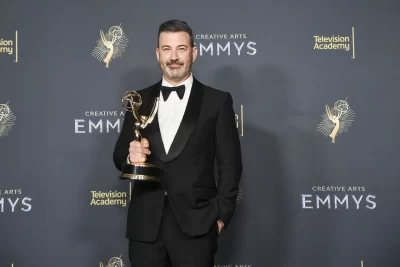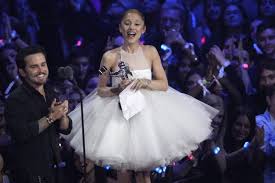
Gov. Glenn Youngkin cast Virginia’s legislative races in monumental terms when he campaigned with a Republican candidate in one of the most competitive districts a few days before the election.
The first-term governor with growing national recognition told a cheering crowd at a historic waterside venue that voters could help build on the “movement” he started with his own victory in 2021 by handing the party full control of the statehouse and keeping the “spirit of Virginia” alive.
After Tuesday’s voting didn’t go as he had hoped, the rhetoric was less soaring.
“I’m here,” he said at a postmortem news conference. “I’m not going anywhere.”
The retired sheriff with whom Youngkin campaigned did win election to the statehouse, but Democrats retained their Senate majority and flipped the House of Delegates, wins that they said were powered by their promises to protect abortion rights.
And persistent chatter about Youngkin possibly making a last-minute entry into the 2024 presidential race is expected now to quiet.
That was the first question Youngkin fielded Wednesday at the news conference: What did this mean for a White House run?
“I have answered this question the same way for a long time which is, I am focused on Virginia,” Youngkin responded. “I have been in Virginia. My name is not on the ballot in New Hampshire. I have not been in Iowa and in South Carolina.”
Still, the quirks of Virginia law offer no clear answer about what comes next. Some have speculated Youngkin may run for president in 2028 or perhaps the U.S. Senate.
Billionaire Republican megadonor Thomas Peterffy had been among the most vocal advocates of a Youngkin run for the White House in 2024 and donated $3 million to the governor’s political action committee. Peterffy said in an interview before Election Day that Youngkin had given him no indication he would enter the race.
“He will not really say, ‘No, absolutely not. Just leave me alone. Forget that.’ He just says ‘I’m 100% focused on Virginia,’ and it is clear to me that if he does not get the Senate in Virginia, then he’s not going to run for president,” said Peterffy, who wasn’t made available for an interview after the election.
In making an eleventh-hour presidential bid, Youngkin would have faced logistical difficulties, ballot access hurdles and a GOP primary electorate that polling shows widely supports former President Donald Trump. Some strategists have speculated Youngkin simply kept his name in the mix to boost fundraising.
“I think the ‘Red Vest Retreat’ was a disaster,” House Democratic leader Don Scott, who is poised to become the chamber’s speaker, said of Youngkin’s widely covered campaign-season event for top donors. “I think the people saw that as a another way that he was affirming that he was not with them and that he was with his billionaire donors from out of the state of Virginia.”
Proponents of a Youngkin presidential bid saw the wealthy former private equity executive and college basketball player as the type of Republican who could win over both loyal Trump voters and moderates. Speculation about a run began as soon as Youngkin defeated former Democratic Gov. Terry McAuliffe.
Youngkin’s ability to connect with voters was on display at rallies before this year’s election. They almost always featured a long line of supporters lingering to greet him.
Even Scott acknowledged that “voters still like Gov. Youngkin.”
“I think they still want Gov. Youngkin to succeed. But the voters wanted to make sure that he had a check on his worst impulses,” Scott said.
When Virginia lawmakers return to Richmond in January, the Democrats’ narrow majority means Youngkin will need bipartisan support for his legislative priorities. He also may be more inclined to use his veto power, rejecting Democratic initiatives in a way that could boost his popularity with the Republican base.
Scott said Democrats would send Youngkin legislation increasing the minimum wage to $15 an hour, banning so-called assault weapons, strengthening red flag laws, which are intended to temporarily remove guns from people with potentially violent behavior and prevent them from hurting themselves or others, and returning Virginia to membership in a bipartisan data-sharing compact designed to fight voter fraud.
Democrats plan to start working on the yearslong process to advance constitutional amendments — previously blocked by the House GOP majority — that would repeal the state’s now-defunct ban on same-sex marriage, take voting rights restoration out of the hands of the governor, and enshrine additional protections for abortion rights.
The new majority will be able to fill vacancies on a powerful regulatory body and a Court of Appeals vacancy that would alter its ideological makeup, said Scott Surovell, a contender for Senate majority leader. He said Youngkin called him to talk about how they could work together.
“He’s going to have to treat us like an equal branch of government now,” Surovell said.
Former Republican Gov. Jim Gilmore, who dealt with divided government for part of his term in the late 1990s and early 2000s, said he expects Democrats will be “relentlessly opposed” to Youngkin.
“He’s going to have to define each program and then take it directly to the people over the top of the Democratic leadership. But he’s good at that,” Gilmore said.
After making himself the face of this year’s campaign cycle and clearly defining success as a GOP trifecta of political control, Youngkin is now dealing with the fallout.
“CLEARANCE SALE: all ‘Youngkin for President 2024’ merchandise,” tweeted University of Virginia political scientist Larry Sabato. He has been a critic of the governor for his willingness to campaign with Republicans who deny the legitimacy of Democrat Joe Biden’s win over Trump in the 2020 presidential election.
Others have come to Youngkin’s defense, though Virginia Republicans are definitely in reset mode.
Devin O’Malley, a Republican communications strategist who worked on Youngkin’s campaign and served as a spokesman for former Vice President Mike Pence’s recently ended presidential bid, said the “dancing on Glenn Youngkin’s grave is wholly premature.”
O’Malley said he had not discussed Youngkin’s future political aspirations with him. But O’Malley said that if Youngkin someday pursues a higher office, he will be boosted by a good record, exceptional work ethic, strong communication skills, “oh, and by the way, donors really like him too.”
___
Associated Press writer Michelle L. Price in New York contributed to this report.






